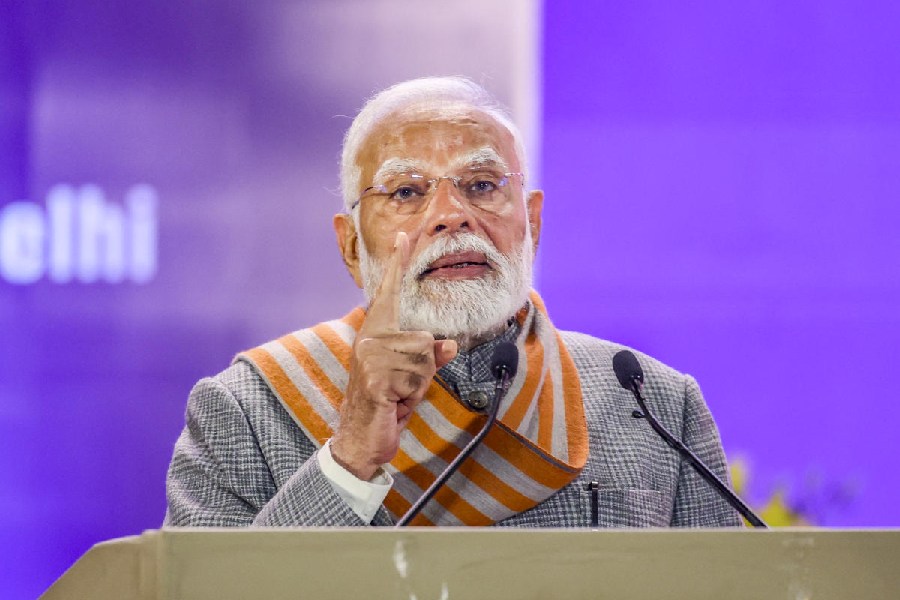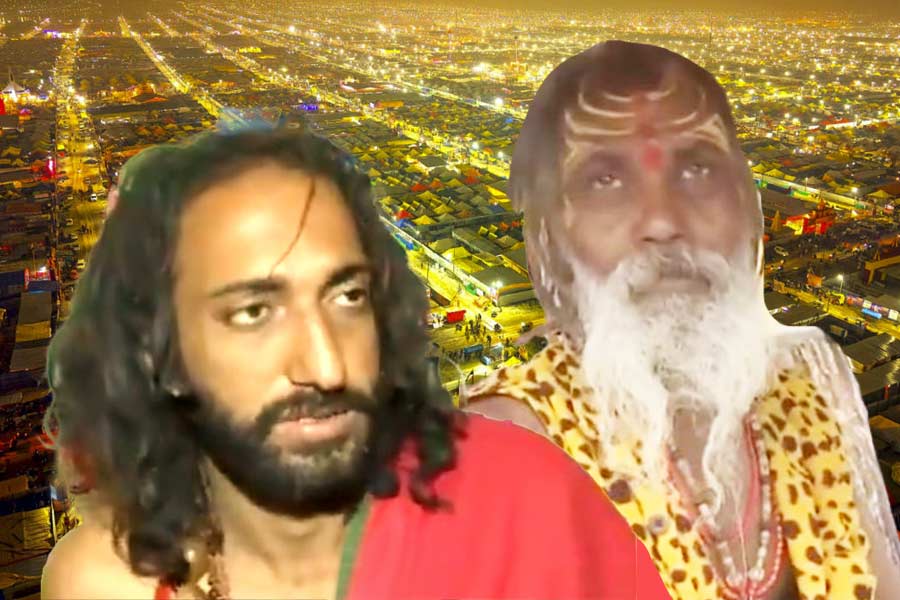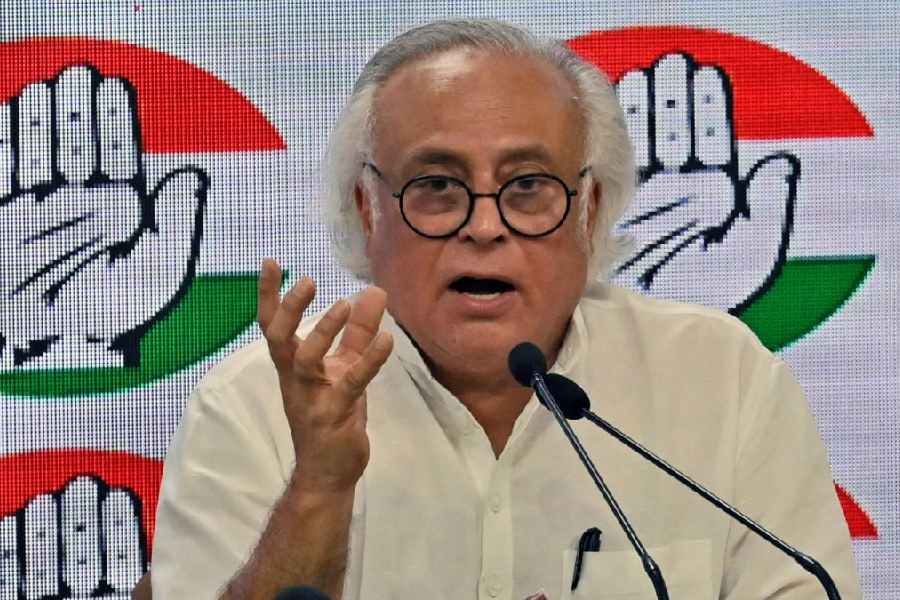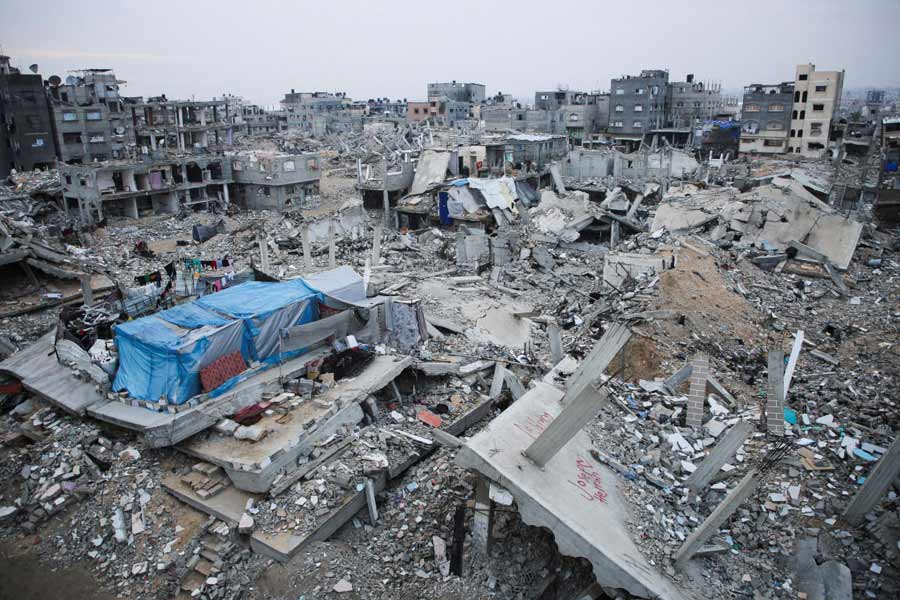For decades, central and state authorities have laboured to increase the footfalls of tourists, pilgrims and outstation students in Kashmir. Since Friday, they have done everything to undo that.
By Saturday evening, the Valley was virtually free of tourists and Amarnath pilgrims, the government having activated its entire machinery to evacuate them. Following them out were hordes of non-Kashmiri students from colleges and institutions like the National Institute of Technology, Srinagar.
Officials said dozens of Road Transport Corporation buses had been deployed since Friday night to evacuate holidaymakers from the tourist hubs of Pahalgam, Gulmarg, Sonamarg and Srinagar. Some flew out; others took the Srinagar-Jammu highway.
Adil Khan, the Kashmir Hotels and Restaurants Association secretary, said most of the tourists had left.
“I think the few who arrived here today are here. The rest are gone, and gone with them is our tourism industry. It has collapsed,” he said on Saturday.
Khan claimed that hotels at sightseeing hotspots like Pahalgam had been asked not to take in any guests.
“We have seen worse times before, but this is the first instance of the government asking tourists to leave,” he said.
“Some European countries have lifted or modified their travel advisories on Kashmir over the years, but now you see your own government issuing an advisory.”
Tourism department sources confirmed that most of the about 10,000 tourists and Amarnath pilgrims who were in the Valley had left.
An official said the government-dictated exodus had come at a time the tourism department was thinking of reaching out to foreign diplomats and pleading that their countries lift their travel advisories, issued after militants abducted six Western tourists in 1995.
In 2011, Germany became the first European country to lift the advisory against travel to Kashmir. Britain and Japan followed suit a year later.
On Saturday, several countries warned their citizens against visiting the state. “Urgently discouraging travelling to Jammu & Kashmir following a security alert by government. Those who are currently in Kashmir are encouraged to leave the state,” a German advisory said.
Officials at NIT Srinagar said classes had been suspended on a directive from the district administration after the state administration bussed non-local students out.
Kashmir has been on the edge over the past week partly because of directives like these, including a police order seeking details of mosques and their management in Srinagar district, and a railway police advisory predicting a long unrest and asking staff to stock rations.
Srinagar deputy commissioner Shahid Chaudhary said the NIT order was “apparently a miscommunication”.
“In wake of unstoppable rumours, heads of all the institutions were advised in the day to remain careful. No advise/instructions for shutting down any institution. This NIT notice is apparently a miscommunication,” Chaudhary tweeted.
However, reports said a polytechnic college in Srinagar had asked its students to vacate their hostels.
The sense of panic is showing no signs of abating, with people crowding petrol pumps and stores since Friday night, looking to stock up on essentials.
Muneer Ahmad, a Srinagar resident, said he had stood in a queue for more than an hour outside a petrol station near Botakadal but it ran out of fuel by the time his turn came.
Governor Satya Pal Malik has urged people not to panic and attributed the recent measures to intelligence about a likely militant strike on the Amarnath Yatra.
“It is in this context that the government issued an advisory asking (the) yatris and tourists to return as soon as possible. These are a vulnerable group of people who do not know the area,” he said.











